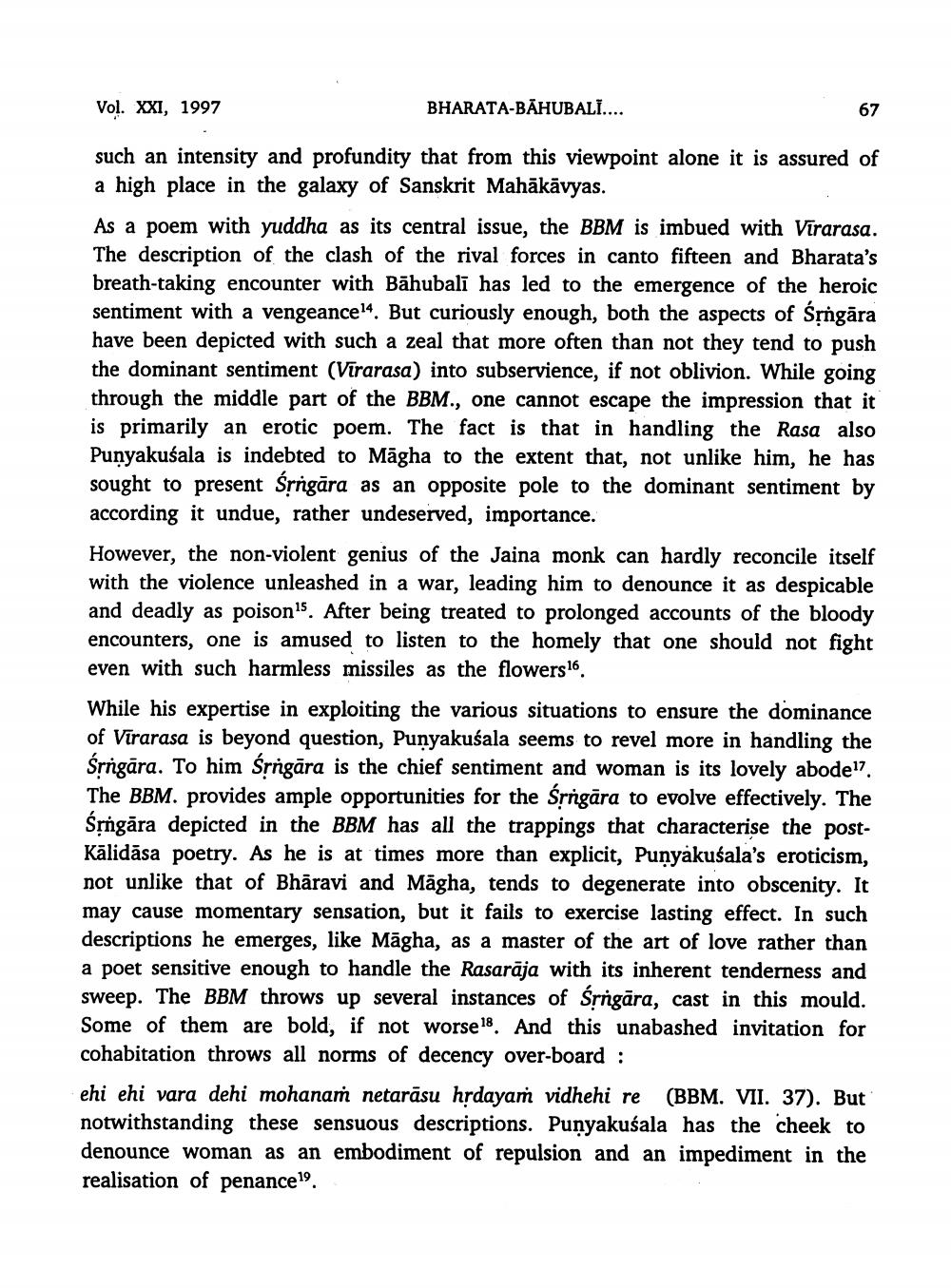________________
Vol. XXI, 1997
BHARATA-BAHUBALI....
such an intensity and profundity that from this viewpoint alone it is assured of a high place in the galaxy of Sanskrit Mahākāvyas.
As a poem with yuddha as its central issue, the BBM is imbued with Virarasa. The description of the clash of the rival forces in canto fifteen and Bharata's breath-taking encounter with Bāhubali has led to the emergence of the heroic sentiment with a vengeance14. But curiously enough, both the aspects of Srngāra
e been depicted with such a zeal that more often than not they tend to push the dominant sentiment (Virarasa) into subservience, if not oblivion. While going through the middle part of the BBM., one cannot escape the impression that it is primarily an erotic poem. The fact is that in handling the Rasa also Punyakušala is indebted to Māgha to the extent that, not unlike him, he has sought to present Śrngāra as an opposite pole to the dominant sentiment by according it undue, rather undeserved, importance.
However, the non-violent genius of the Jaina monk can hardly reconcile itself with the violence unleashed in a war, leading him to denounce it as despicable and deadly as poison'. After being treated to prolonged accounts of the bloody encounters, one is amused to listen to the homely that one should not fight even with such harmless missiles as the flowers 16.
While his expertise in exploiting the various situations to ensure the dominance of Virarasa is beyond question, Punyakusala seems to revel more in handling the Srngāra. To him Srngāra is the chief sentiment and woman is its lovely abode!7 The BBM. provides ample opportunities for the Srngāra to evolve effectively. The Śrngāra depicted in the BBM has all the trappings that characterise the postKālidāsa poetry. As he is at times more than explicit, Punyakusala's eroticism, not unlike that of Bhāravi and Māgha, tends to degenerate into obscenity. It may cause momentary sensation, but it fails to exercise lasting effect. In such descriptions he emerges, like Māgha, as a master of the art of love rather than a poet sensitive enough to handle the Rasarāja with its inherent tenderness and sweep. The BBM throws up several instances of Srngāra, cast in this mould. Some of them are bold, if not worse 18. And this unabashed invitation for cohabitation throws all norms of decency over-board : ehi ehi vara dehi mohanaṁ netarāsu hrdayam vidhehi re (BBM. VII. 37). But notwithstanding these sensuous descriptions. Punyakušala has the cheek to denounce woman as an embodiment of repulsion and an impediment in the realisation of penance.




